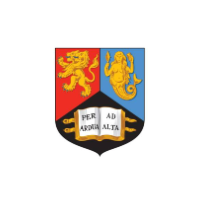项目概述 / Program Summary
Studying this Palaeontology and Geology MSci degree course will give students a rigorous training in palaeontology, enabling them to use the fossil record to understand the evolution and diversity of ancient life, from dinosaurs to microfossils.
Students will be taught by lecturers from one of the largest and strongest palaeontology research groups in the UK, and the focus on research-led teaching will provide students with exciting opportunities to carry out their own cutting-edge research projects. The rich fossil collections of the Lapworth Museum of Geology provide a unique resource that supports teaching and research.
This course will provide students with the skills necessary to develop a career as a professional palaeontologist engaged in research and teaching or in museum curation, or as an applied palaeontologist/biostratigrapher within the oil industry. The core training in geology will also provide opportunities for a potential career as a geoscientist, if this is the career path students would like to take.
The four-year Palaeontology and Geology with an International Year MSci programme provides an opportunity for students to spend a year studying overseas whilst following their interests in Palaeontology and Geology more fully, and developing key skills for career development.
The University of Birmingham is excited to announce an update to the palaeontology field course linked to Year 3 field and museum skills module. The new module will run for the first time in 2020/21 and will be linked to active research sites, with likely initial destinations in either the south-western USA (Utah/Arizona) or South Africa
All first year modules are compulsory and span the breadth of Earth Sciences and include contributions from the Biology group. From year two onwards, there is more focus on palaeontology and an increasing amount of choice that allows students to select modules following their interests.
In year three and four, students will also complete independent Earth Science research projects based on primary data collected in the field/laboratory or museum developing your practical, analytical and communication skills.
In addition to lectures and practical classes, students can look forward to fieldwork training in palaeobiological and geological techniques. This work is undertaken both in the UK and abroad, and is assessed by means of field-driven reports, presentations and field notebook.
Getting out of the lecture theatre and into the field is an exhilarating experience. Whether students are sampling, mapping or collecting data, the subject matter really comes alive. There's no better way to learn about the natural and the built world than by being in the great outdoors.
Fieldwork is an essential element of our degree programmes, and Earth Sciences at the University of Birmingham has an outstanding reputation for providing its students with high quality field training. It offers students the chance to travel, work independently as well as in a group and learn valuable technical skills. The University of Birmingham will make the necessary arrangements to accommodate students with disabilities for field courses throughout their time at the University of Birmingham.
相似项目 / Similar Programs

综合硕士
项目等级

48月
项目时长

£12006.00 英镑 / 年
生活成本

£25860.00 英镑 / 第一年
总学费

£0.00 英镑
申请费用
